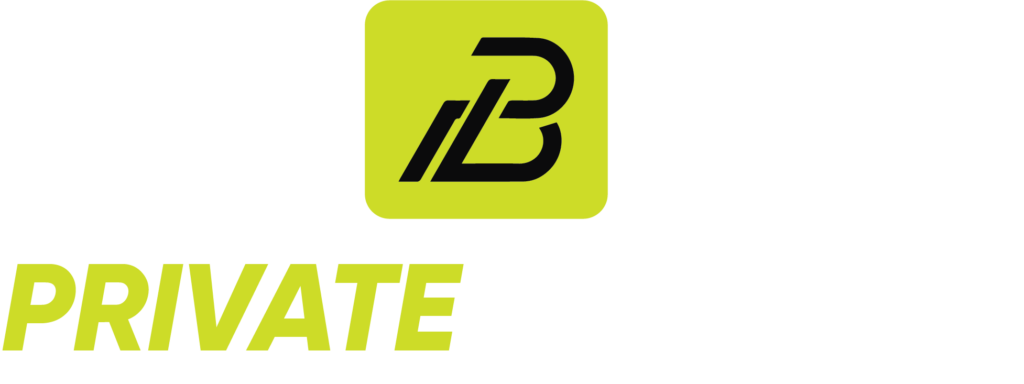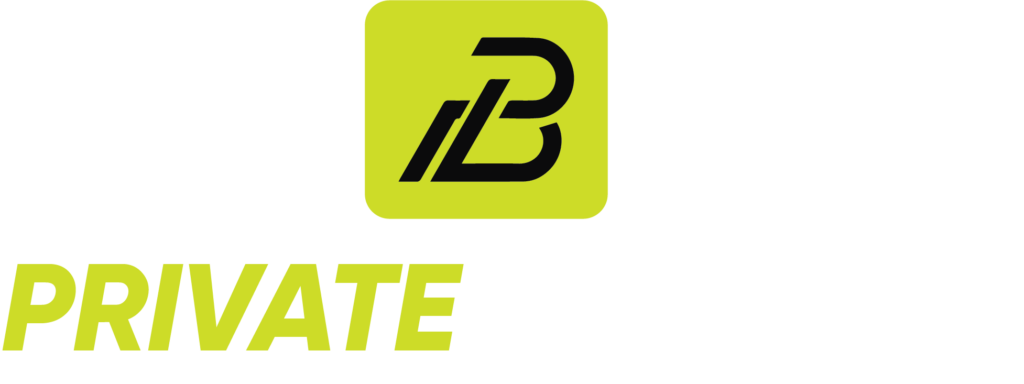Buying a business is one of the most exciting and potentially rewarding investments you can make. Whether you’re a first-time buyer or an experienced entrepreneur, acquiring an existing business offers the opportunity to skip the early challenges of starting from scratch. However, navigating the process of buying a business can be complex, involving significant financial commitment, thorough research, and careful decision-making.
This guide is designed to provide you with everything you need to know about purchasing a business, from understanding the key steps involved to evaluating opportunities and closing the deal. We’ll walk you through the critical stages of buying a business, including how to assess the financial health of a potential acquisition, conduct due diligence, secure financing, and negotiate the terms of the sale.
By the end of this guide, you’ll have a clearer understanding of the process, helping you make informed decisions and ultimately find the right business that aligns with your goals and vision for the future.
Understanding Why You Want to Buy a Business
Before diving into buying a business, it’s essential to have a clear understanding of why you want to make this investment. Buying a business is a significant decision, and understanding your motivations will help guide your search, shape your approach, and ultimately ensure that you make the right choice. By clarifying your goals, you can tailor your search to find a business that aligns with both your personal and financial aspirations.
Download Checklist To Selling A Business
Defining Your Business Goals
Ask yourself: What do I want to achieve by buying a business? This fundamental question is the starting point for your entire journey. Your goals will determine the type of business you’re looking for and how you approach the acquisition process.
- Entrepreneurship: For some, buying a business is an exciting way to enter the entrepreneurial world. Owning a business gives you the opportunity to create something of your own, be your own boss, and work on your terms. If you’ve always wanted to own a business but don’t want to start from scratch, buying an established business can be a great way to fast-track your journey.
- Expansion or Diversification: If you already own a business, buying another one might be part of your strategy to diversify your portfolio or expand into new markets. Acquiring a business in a different industry or region can provide new revenue streams, expand your customer base, and reduce your overall business risk by spreading your operations across multiple sectors.
- Investing for Income: Some buyers are interested in purchasing a business as an investment opportunity. A profitable, established business can provide a steady income and potentially appreciate in value over time. If you’re looking for a more passive investment, this can be an attractive option.
- Adding Value: Others may want to buy a business with the intent of improving or modernizing it. Whether through updating operations, introducing new products, or tapping into new marketing strategies, these buyers are focused on enhancing the business’s value and performance.
What Type of Business is Right for You?
Once you’ve defined your goals, the next step is to determine the type of business that fits those objectives. Keep in mind that no two businesses are the same, and your preferences, skills, and experiences will play a key role in choosing the right one. Here are a few considerations:
- Industry Preferences: Which industries excite you? Are you drawn to retail, technology, hospitality, healthcare, or manufacturing? Choosing a business in an industry you’re passionate about or familiar with will give you a competitive edge and a better understanding of the market dynamics.
- Size and Scale: How large of a business are you looking to buy? Businesses come in all shapes and sizes, from small startups to large enterprises. It’s important to choose one that aligns with your financial capacity, risk tolerance, and management experience.
- Location: Is the business located in a region or market that you are familiar with or interested in? The geographic location can impact the success of your business, especially if you’re buying a brick-and-mortar operation.
- Experience Level: Are you a first-time buyer or a seasoned entrepreneur? Some buyers prefer small businesses with growth potential, while others may want to purchase a larger, well-established company with a solid customer base and predictable revenue.
The Importance of Understanding Your Motivation
Understanding why you want to buy a business provides a strong foundation for the entire buying process. It will help you focus your search, identify key requirements, and avoid making hasty decisions based on short-term factors or impulses. Whether you’re looking to invest for income, expand an existing business, or enter a new industry, having clear goals will keep you aligned with your long-term vision. Additionally, it will help you evaluate potential businesses more critically, ensuring that the business you choose truly meets your objectives.
By clearly defining your business goals and understanding the type of business that aligns with your vision, you can start your search with confidence and clarity, setting yourself up for success in your business acquisition journey.
Finding the Right Business to Buy
Once you have a clear understanding of why you want to buy a business, the next critical step is to find the right business that aligns with your goals, financial capacity, and personal preferences. This process involves exploring various business opportunities, evaluating listings, and using the right resources to narrow down your options.
Exploring Business Listings
The first step in your search is exploring business listings, which are essentially marketplaces where businesses for sale are advertised. These listings give you a sense of the types of businesses available, their asking prices, and other essential details.
- Online Marketplaces: Websites like Private Business, BizBuySell, and BusinessBroker.net are some of the most popular platforms where you can find businesses listed for sale. These platforms allow you to search for businesses based on industry, location, price range, and other criteria. You can find everything from small local businesses to large, established companies.
- Business Sale Websites: Specialized websites focusing on buying and selling businesses, such as Private Business, often offer additional resources like valuation tools, articles, and guides to help you through the process.
- Franchises: If you’re looking for an established business model with a proven track record, buying a franchise could be a great option. Many franchises provide ongoing support and training, making it easier for first-time buyers to step into a business.
- Local Listings: Don’t forget about local newspapers, community bulletin boards, and industry-specific publications. Sometimes, businesses are sold through more traditional means and may not be listed on large online platforms.
Working with Brokers and Advisors
Business brokers and advisors can be invaluable in helping you find the right business. These professionals specialize in connecting buyers and sellers and often have access to businesses that aren’t publicly listed.
- Business Brokers: A business broker acts as an intermediary, helping buyers find suitable businesses for sale. They can assist in assessing the business, negotiating the terms of sale, and facilitating the deal. Brokers can also provide insights into the market and help you identify opportunities that match your goals.
- Mergers and Acquisitions (M&A) Advisors: If you’re looking to acquire a larger business or have a more complex acquisition, an M&A advisor may be a better fit. They are highly skilled in handling high-value transactions and provide strategic advice on mergers and acquisitions.
- Legal and Financial Advisors: Engaging with a legal or financial advisor early in your search can help you navigate the technical aspects of the process. They can assist in understanding financial statements, reviewing contracts, and ensuring the deal is structured properly.
Exploring Business Listings on Business Sellers Platforms
The first step in your search is exploring business sellers platforms, which are essentially online marketplaces where businesses for sale are advertised. These platforms give you a sense of the types of businesses available, their asking prices, and other essential details.
- Private Business: One of the most trusted platforms for buying and selling businesses is Private Business. It’s a dedicated marketplace that connects buyers with businesses for sale across various industries. With Private Business, you gain access to a wide range of businesses that have been vetted for serious buyers, ensuring that the listings you explore are credible and legitimate.
- Private Business offers advanced search filters, allowing you to easily narrow down your choices based on factors like industry, location, business size, and price range. Whether you’re looking for a small local business or a larger, more established company, Private Business can help you find the right opportunity to match your goals.
- Advantages of Using Private Business:
- Verified Listings: Businesses listed on Private Business are often pre-screened, so you can trust the accuracy of the information.
- Search Filters: You can refine your search according to your preferences (industry, location, budget).
- Comprehensive Business Information: Listings typically include detailed financials, business history, and growth potential, making it easier to assess opportunities.
- Other Business Sale Websites: Besides Private Business, there are several other well-known business sale platforms such as BizBuySell and BusinessBroker.net. These websites feature a broad selection of businesses available for sale, along with valuable resources to guide you through the purchasing process. While these platforms are widely used, the benefit of using a specialized site like Private Business is that it often caters to a more curated audience, meaning the opportunities listed are more serious and tailored for buyers with clear intentions.
Evaluating Listings: Red Flags and Key Questions
When you find a business that interests you, it’s essential to ask the right questions and carefully assess whether it’s the right fit. This step involves a deeper level of analysis to ensure you’re making an informed decision.
- Is the Business Profitable?: A business that isn’t generating a profit or has low profitability may not be the best investment. Always ask for financial statements for at least the past three years to understand revenue, expenses, and profitability trends.
- Why is the Business for Sale?: Understanding why the current owner is selling can provide important insights. Is it due to personal reasons, or is the business struggling? If it’s struggling, you’ll need to consider whether you can turn it around.
- What is the Competition Like?: Look at the competitive landscape. Is the business in a market with significant competition? How does it differentiate itself? You need to ensure that the business has a competitive advantage or at least a sustainable position in its market.
- Is the Business Dependent on Key Individuals?: If the business relies heavily on the current owner or key employees, it may face challenges after the sale. Make sure the business is not overly dependent on the current team unless you’re prepared to handle a transition.
- Customer Base and Contracts: Does the business have a loyal customer base? Are there long-term contracts or agreements that provide a stable source of revenue? These are important factors to consider when assessing the value of the business.
Finding the right business to buy is a critical step in your journey as a business owner or investor. Whether you choose to explore Private Business, use other business sellers platforms, or work with professional brokers, there are numerous avenues to find the business that aligns with your goals. Take your time to research and evaluate each opportunity thoroughly, ensuring that the business you choose has the potential to succeed and grow under your ownership.
Evaluating Potential Business Opportunities
Once you’ve identified a business that interests you, it’s essential to conduct a thorough evaluation to determine if it’s a worthwhile investment. Start by analyzing the business’s financial health, as this is a critical indicator of its overall stability and profitability. Request detailed financial documents, such as balance sheets, profit and loss statements, and cash flow reports, for at least the past three years. This will give you insight into the company’s revenue trends, profitability, and potential risks. Additionally, assess whether the business has a sustainable competitive advantage in its industry. Look for unique selling points (USPs), loyal customers, and long-term contracts, which can offer stability and future growth potential.
Equally important is examining the business model and its operational efficiency. Understanding how the business generates revenue and whether it is scalable will help you gauge its potential for growth. Consider whether there are any inefficiencies or areas for improvement in the current operations that you could address once you acquire the business. Research the industry trends and growth outlook as well, ensuring that the market conditions are favorable for the business. By evaluating these factors, you can determine if the business aligns with your investment goals and if it has the potential to thrive under your ownership.
Due Diligence Process
The due diligence process is a critical step in buying a business, as it allows you to verify the information provided by the seller and uncover any potential risks or issues. During this phase, you should conduct a detailed examination of the business’s financial, legal, and operational aspects. Start with financial due diligence by reviewing financial statements, tax returns, and any outstanding debts or liabilities. Ensure the revenue and profit figures align with the seller’s claims and investigate any irregularities that might indicate financial mismanagement. This step helps confirm the accuracy of the financial information and protects you from any hidden financial burdens.
In addition to financial due diligence, operational and legal due diligence are equally important. Review the business’s contracts, intellectual property, and any existing lawsuits or legal disputes. Investigate key employee relationships and assess whether any key personnel are essential to the company’s success, as their departure could impact operations. Operationally, examine business processes, supply chain logistics, and customer base stability to ensure the business can continue functioning smoothly after the purchase. By thoroughly conducting due diligence, you mitigate risks and gain a clearer understanding of what you are acquiring, ensuring that the business aligns with your goals and expectations.
Negotiating the Deal
Negotiating the deal is one of the most critical stages in the business acquisition process. Once you’ve identified a business that aligns with your goals and completed due diligence, it’s time to discuss the terms of the purchase. Begin by assessing the business’s valuation and determining whether the asking price is reasonable. Factors like revenue, profitability, market position, and growth potential should play a major role in determining an appropriate price. It’s essential to approach negotiations with a clear understanding of the business’s worth and your own financial limits. This gives you a strong position to negotiate favorable terms while ensuring you don’t overpay for the business.
The negotiation process also involves agreeing on key terms such as the payment structure, contingencies, and any ongoing involvement of the seller. You may negotiate a full purchase price, or in some cases, consider seller financing or an earn-out agreement, where payments are made over time based on the business’s performance post-sale. It’s important to remain flexible and open to creative solutions, but always ensure that the terms align with your financial capabilities and long-term goals. By being well-prepared and strategic, you can secure a deal that is both fair and beneficial to both parties, setting the stage for a smooth transition and successful business acquisition.
Closing the Deal
Closing the deal marks the final step in the business acquisition process, where all negotiations, due diligence, and paperwork come together. At this stage, both parties should finalize the terms of the purchase agreement, which outlines the details of the transaction, including the purchase price, payment structure, and any contingencies. It’s crucial to work with legal and financial advisors to ensure that the agreement is properly drafted and protects your interests. The agreement should also include clauses related to the transfer of assets, intellectual property, and any existing contracts. Once the purchase agreement is finalized, both parties will sign, and the agreed-upon payment will be made.
After the contract is signed, the actual transfer of ownership takes place. This involves transferring assets, such as inventory, equipment, and intellectual property, as well as notifying customers, employees, and vendors about the change in ownership. Depending on the nature of the business, you may need to apply for new licenses, update contracts, or change banking and financial information. It’s important to ensure that all legal formalities are completed and any necessary filings are made with the relevant authorities. Once everything is in place, the business officially becomes yours, and you can begin implementing your vision for its growth and success under your leadership.






